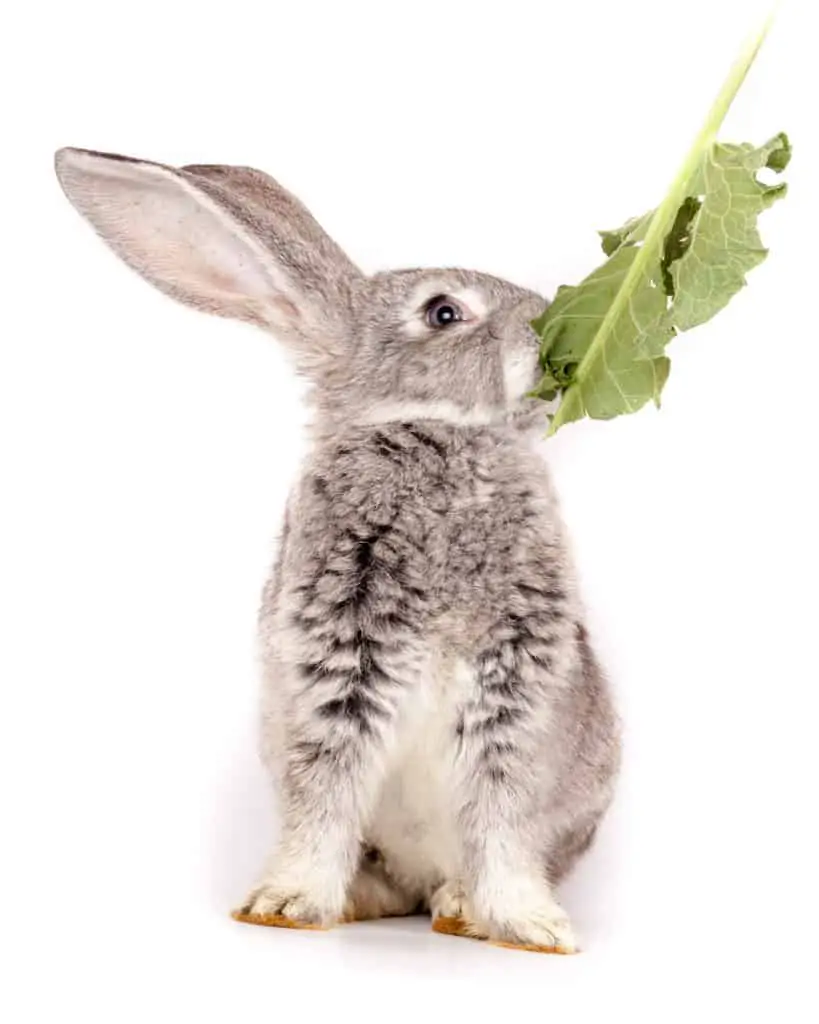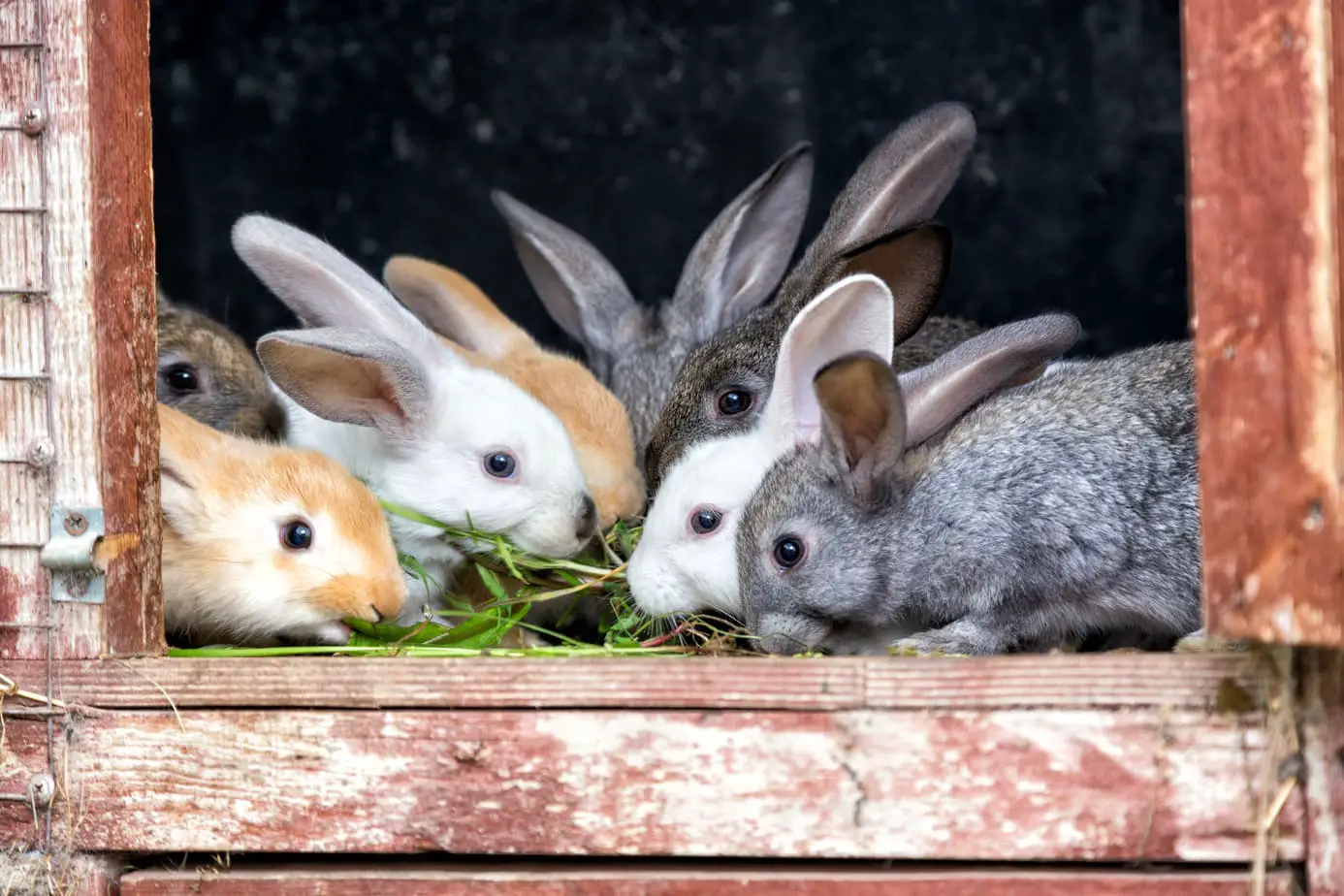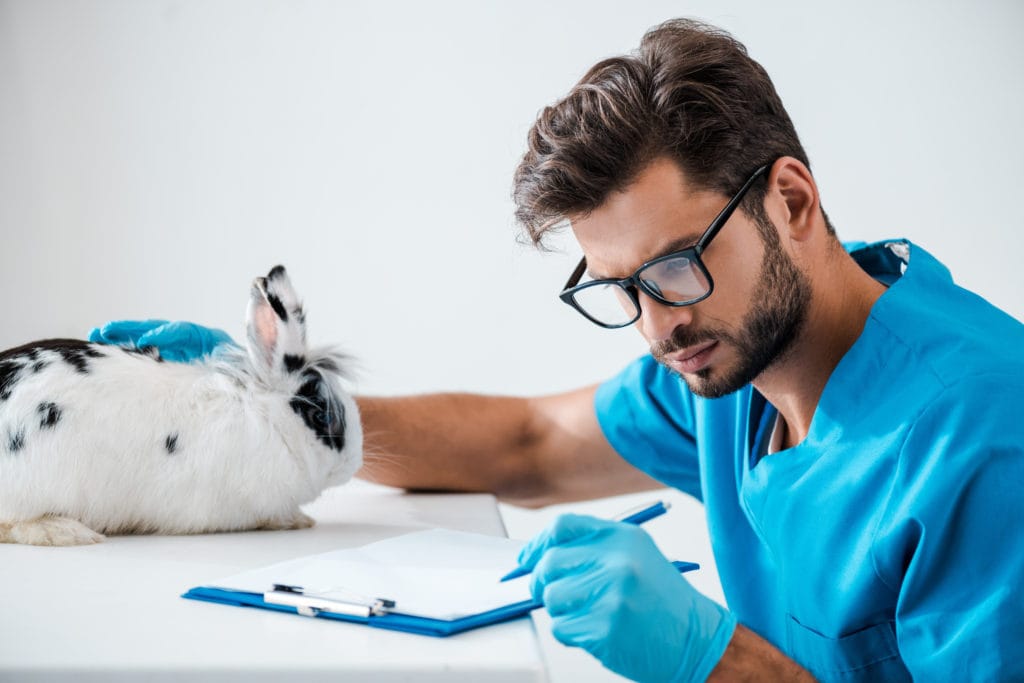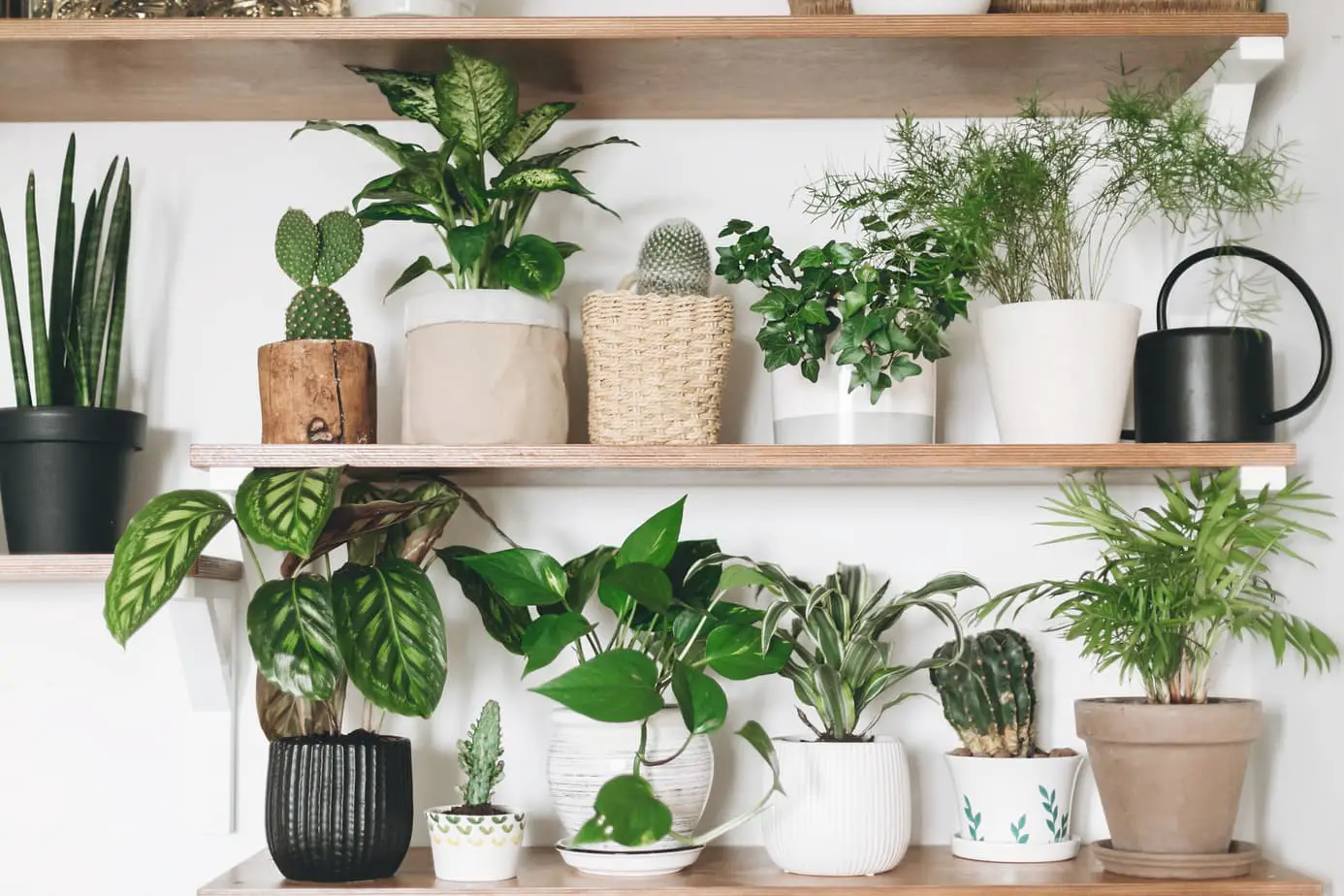
Rabbits will chew on just about anything. They especially love greenery and will take any opportunity to eat plants whether they are harmless or not. But if your Bunny has eaten a poisonous plant what steps need to be taken and how can the toxin be remedied.
Rabbits who have eaten poisonous plants need to be treated as soon as possible. Rabbits are temperamental in terms of health and only have a limited time before permanent damage is done. So you need to follow certain steps to treat your rabbit effectively.
This article runs through multiple steps that can help your rabbit after digesting a plant which can cause harm to your bun. It also will tell of some serious plants to keep away from your rabbit.
The Checklist
A rabbit will eat many things including plants that will harm themselves. They won’t know to stop themselves and that will cause them discomfort. So, if your bun has eaten a poisonous plant here is what to do.
1. Realize Your Rabbit Is Sick
First, you have to recognize that your rabbit is sick. If you didn’t see them consume the plant, then it could be hours before you realize they are sick. The sooner you discover they are sick the better. How can you discover they are sick?
As a bunny owner, you should be spending enough time with them to know their normal behaviors. If they are not acting as they normally do, then this is a good indicator that they are sick. Here is an additional article that helps understand if your rabbit is sick and what to do if they are sick.
This is a helpful article that you might want to check out: “Should a Rabbit’s Ears Be Warm? (Is He Sick)” can tell you all about what to look for and notice each time you pet your rabbit. Doing reseach for this article really helped me differntiate between a sick rabbit and a healthy one! – Laura Pierce
2. Identify What Your Rabbit Ate
The next thing you need to do is identify exactly what your rabbit ate. Most likely your rabbit didn’t finish the plant that they ate. Look around where your rabbit has been and look for any plants that have been chewed.
It is also a possibility that your bunny could have eaten an artificial item that could be causing them discomfort. If this happens then take them straight to the vet.
3. Determine How Much the Rabbit Ate
After you have found exactly what your bunny ate, you need to know how much they ate. This can be difficult but can still be discovered. Many poisonous plants to rabbits can be consumed in small amounts with little to no problems.
If a large amount has been eaten then you know that there are more steps to take to get your rabbit back to its full health.
4. Gather Your Rabbits Health Records

This step should actually be one that you already know, and should not be something you should be finding out as they are sick. But you need to know exactly what type of bunny you have. Different bunnies species have different anatomies and can change how quickly a toxin can affect them.
You should also know exactly how big your bunny is. That can affect the effect the poisonous plant will have on your rabbit. If they are larger it will not affect the bunny as quickly or at all, whereas a smaller rabbit will succumb much quicker.
5. Hydrate and Feed Soft Foods
Take immediate actions of keeping your rabbit hydrated and fed. They most likely will not want to eat so feeding them soft foods such as applesauce is a good way to keep their nutrition up. Keeping them hydrated may help flush out the toxin from their system.
Regardless of if this visibly helps, it is important to keep your rabbit’s strength up to give them a better chance at fighting through the toxin.
6. Take Your Rabbit to the Vet
If you have done everything up to this point and your rabbit is still not feeling well, do not wait more than a couple of hours to see if they are going to get up from this. Take them to the vet.

The vet will have a better chance of diagnosing exactly what is wrong, what was eaten, and how it will affect your rabbit. They may prescribe medicine to help. The vet has been trained to help with these situations and may have additional insight to help your rabbit become healthy again.
In some cases, it might be better to jump straight to this step. Depending on the plant that your rabbit ate could affect how quickly you need to get them checked out.
Poisonous Plants to Rabbits
There are many plants in the world and plenty of them are safe for your rabbit to eat. They will have no problem with lots of plants, but which plants are dangerous to let them eat, and how to keep them away from them?
Houseplants
Many houseplants can be dangerous and even poisonous to your rabbit. Houseplants are plants that are usually placed around the house for decoration more than anything else. Keep these away from your rabbit, especially if you let your bunny free-range.
Some common house plants will be listed below. They will detail what they are and how they may hurt your rabbit.
Aloe is a houseplant that is used both for decoration and some people will use it to create their own house remedy of aloe vera. But it can cause an upset stomach if your rabbit eats it. It has a natural chemical in it that actually works as a laxative. This can be problematic for your rabbit.
Ivy is a plant that is used in house decorations as well as yard decorations. It is a vine that grows sporadically but looks appealing to your rabbit. Too much of this plant however can actually cause ulcerations in your rabbit’s digestive tract.

Pothos is an indoor houseplant that is also known as Devil’s Ivy. It is a vine that requires little to no maintenance which makes it ideal for homeowners looking to get into houseplants. But, Pothos can cause bladder stones and calcium crystals to form if your bun decides to eat it, and this can definitely require a visit to the vet.
Chrysanthemums can be found as house plants but also yard plants. They have flowered heads that when eaten by your rabbit can cause skin irritation. This can be dangerous to your bun as it may cause harm to itself as it deals with irritated skin.
Eucalyptus is a less common houseplant but can be used in some decorations. Its leaves are not digested very easily if consumed and can be highly toxic to a rabbit who has eaten one. A rabbit’s digestive system is meant to only deal with plants that are easy to digest, such as hay and grass.
Tip: You can find a list of plants, vegtables, herbs, and more that a rabbit can eat, along with other foods that are safe to give your rabbit in my article 50 Human Foods Wild Rabbits Love to Eat here.
Other Dangerous Plants
Houseplants are not the only plants dangerous to rabbits. They can range from fruits and vegetables to wild plants that if eaten can cause serious harm.
As for the fruit and vegetable, some of the most dangerous are avocados, iceberg lettuce, potatoes, rhubarb, and onions. These have their varying degrees, with avocados being some of the most dangerous, but it is best to keep these away from your rabbits.
In regards to wild plants, one of the most profound plants to keep away from your rabbit is Poison ivy. This can be extremely dangerous for your rabbit and can lead to their death.
Other plants to keep away from your rabbit is nightshade and hydrangea. This website gives an additional list of plants to keep away from. This article from The Bunny Lady, “20 Plants that are Poisonous to Rabbits“, goes along well with this topic!
Interesting Facts About Rabbits
Rabbits have a high versatility when it comes to dealing with toxins and poisons. Yes, they will eat just about any plant for food, but they also have to eat a good amount of most dangerous plants for there to be any real effect on their systems.
But that doesn’t mean that they can eat whatever they want. They still require maintenance and need to be closely monitored. This is easy to do if you know some things about their bodies.
Something very important to know is that rabbits are not capable of vomiting. This means that if they do ingest a poisonous plant the only way out is to go through the digestive system. This can be dangerous, but it is useful to know if your rabbit is dealing with a poisonous plant in its system.
The other interesting thing to know about rabbits is that they are caecetrophic. This means that they eat their own poop to get the nutrients that they need. They have to digest certain things twice because their stomachs can’t break them down the first time.
This allows for the possibility of plants to run through their digestive system without being fully broken down. They can recycle poisons and toxins out of their system because of this.
Conclusion
Rabbits, despite their resilience against dealing with poisons, can still be in danger of those poisons. They need to be watched after and if they are sick they need to be helped. Bunnies cannot help themselves. Follow the steps to help them regain their health.
Help them when they need it. They have a natural way to cycle out toxins, but sometimes these are not good enough and can leave them extremely sick. Become acquainted with what can harm your rabbit the most and know how to best help them.
